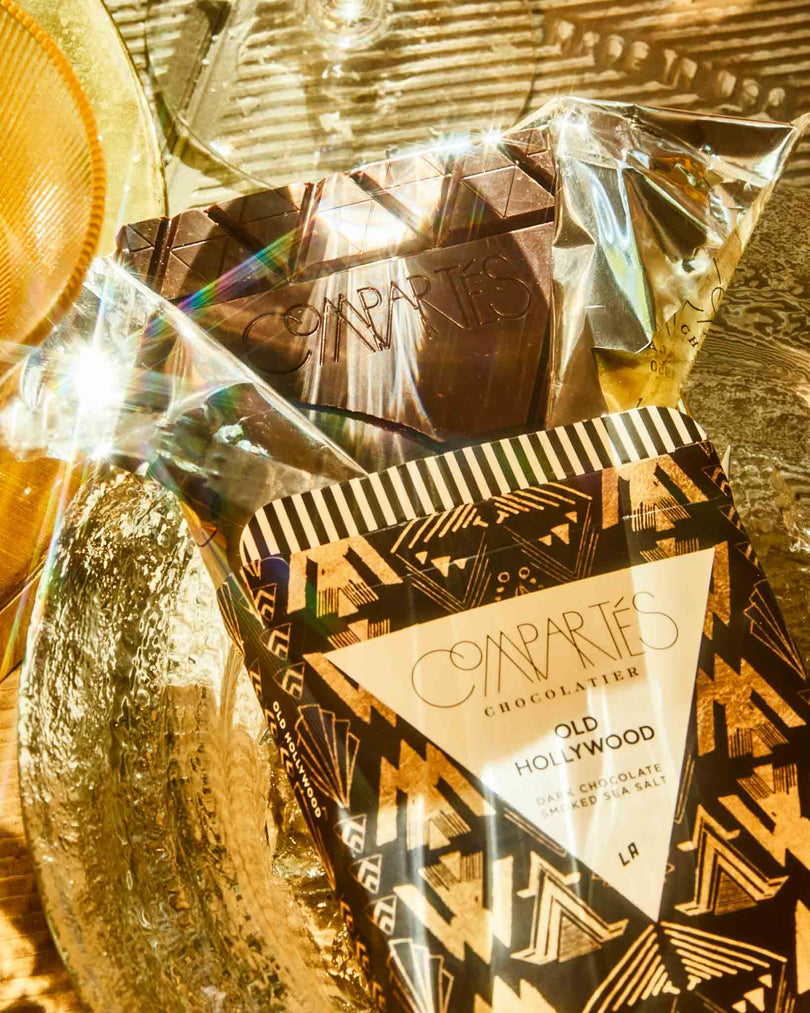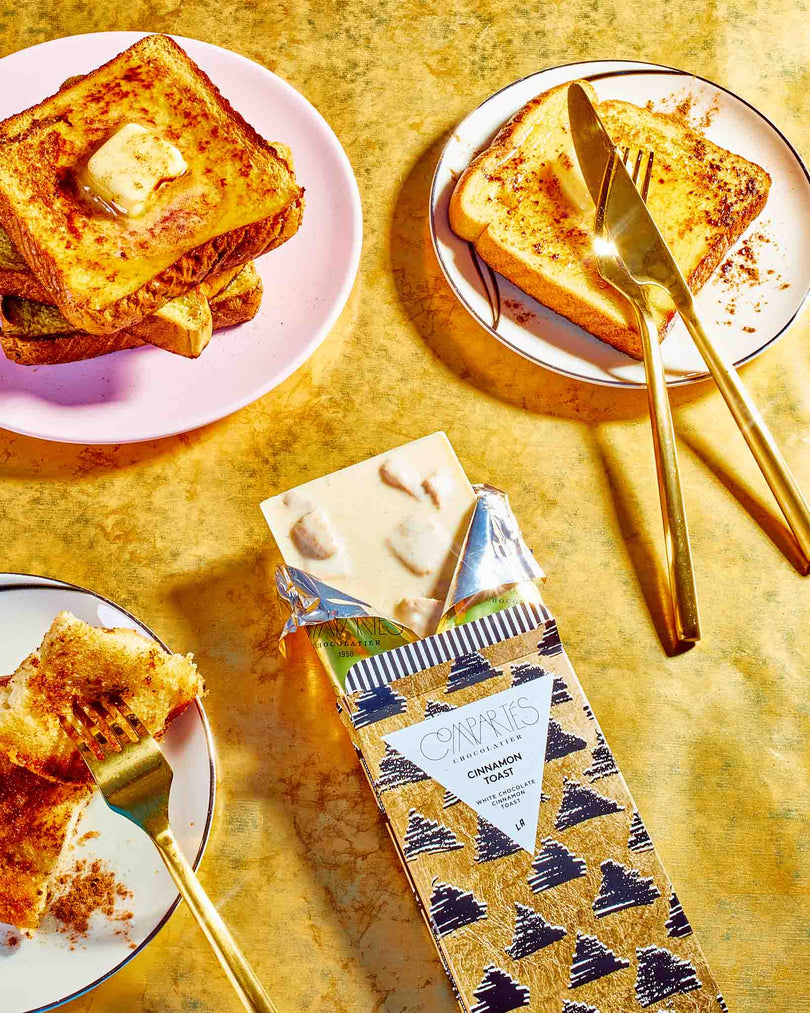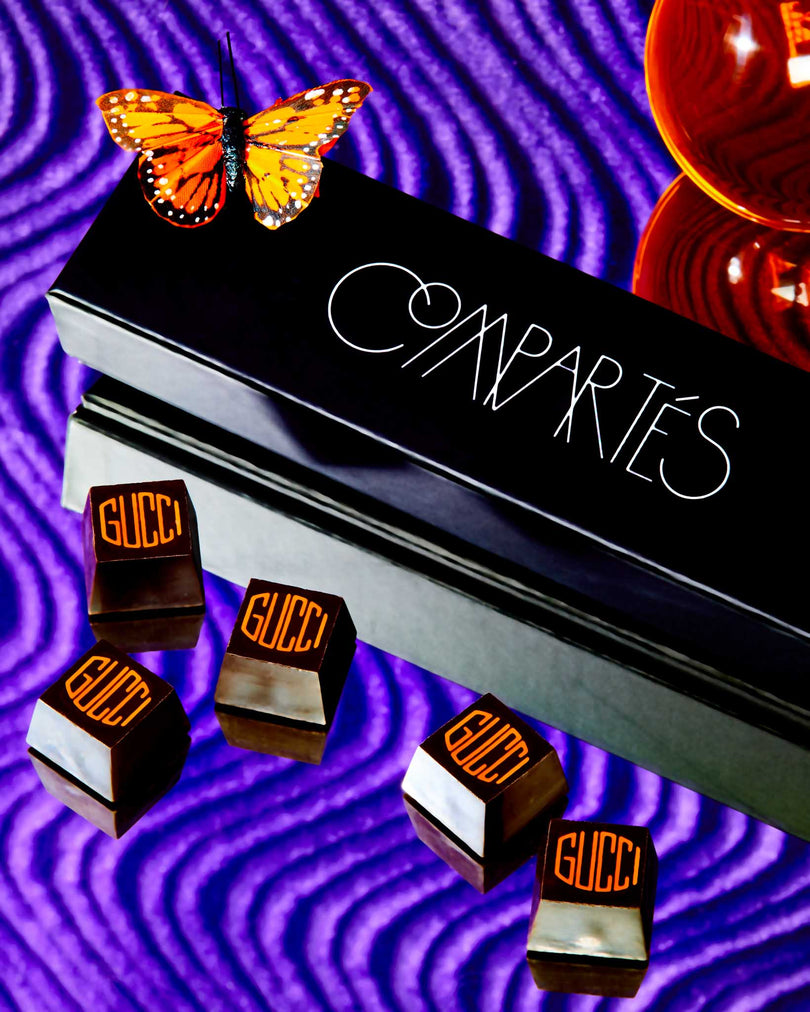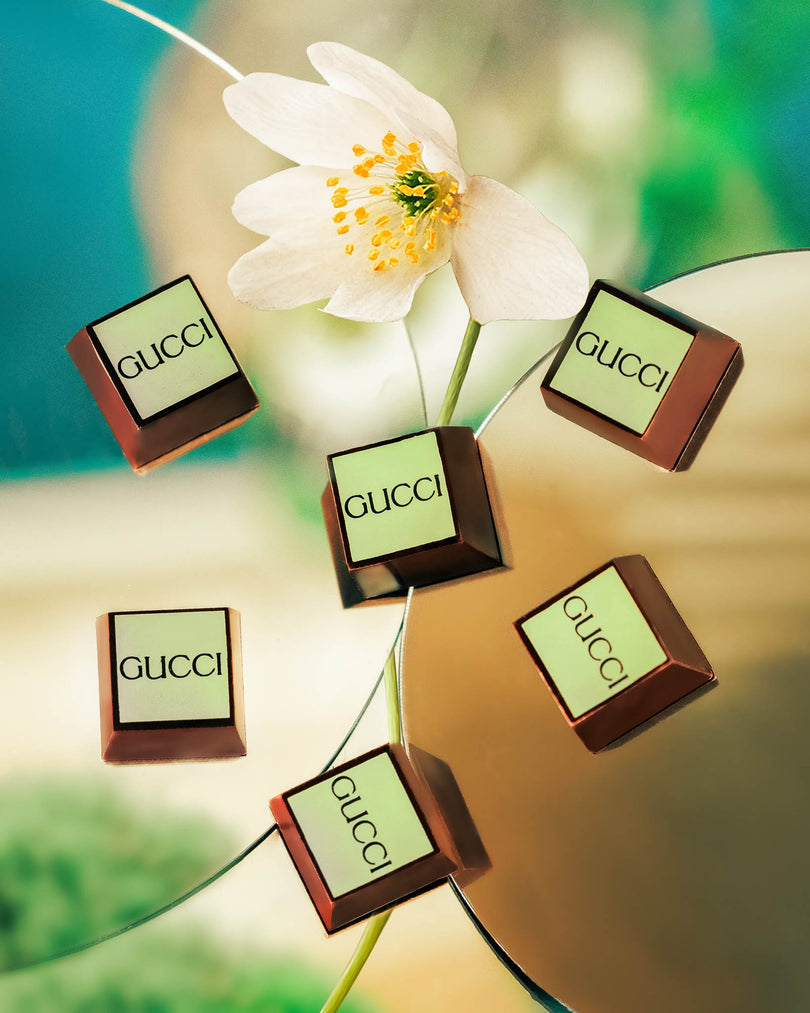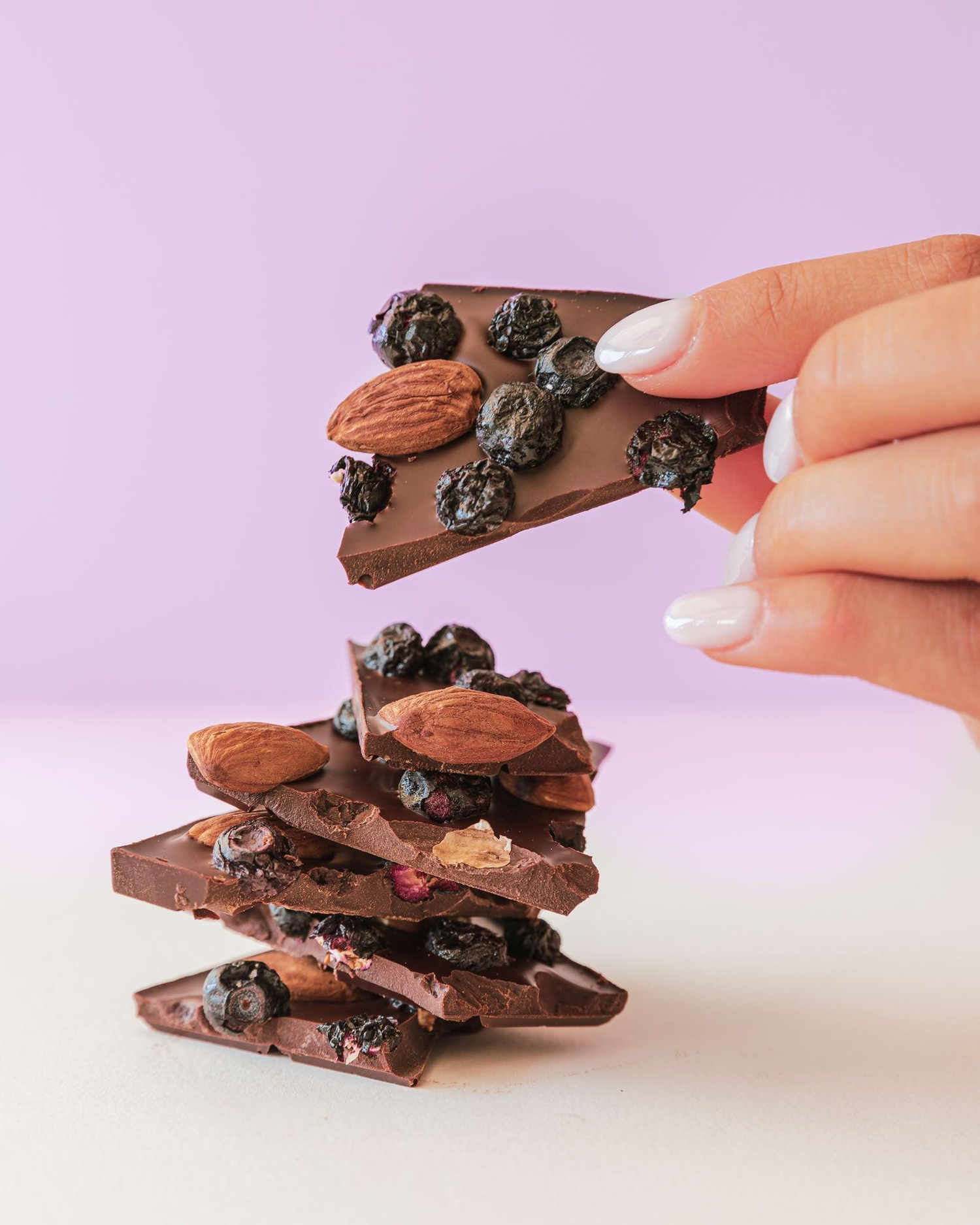Indulging in chocolate is often seen as a delightful, guilty pleasure. The very mention of it conjures images of decadence and pure, unadulterated indulgence. Whether you savor the velvety richness of dark chocolate or the creamy sweetness of milk chocolate, it's a sensory escape from the ordinary. But what if we told you that beneath that luscious facade lies a realm of not just sensual enjoyment, but also a surprising array of health benefits?
In this exploration, we invite you to uncover the mysteries behind the magic of real cocoa beans used to create some of the most decadent chocolates we know and love today.
From distinguishing the fundamental differences between milk and dark chocolate to discovering the healthful qualities that make dark chocolate a surprisingly nutritious treat, our journey promises genuine intrigue. Because, when it comes down to it, the world of chocolate is teeming with both delightful surprises and a wealth of health benefits, all waiting to be unveiled.
What Is Chocolate?
Chocolate, in all its diverse forms, is a culinary delight with a history dating back to ancient times when it was first enjoyed as a beverage. Over the centuries, it has evolved into the delightful treat we relish today.
You see, chocolate owes its existence to the humble cocoa bean. These beans, once separated from the cocoa nibs, undergo a process that eventually results in the delectable chocolate bars we all know and love.
Chocolate's journey from a simple to a complex delicacy involves a refined blend of essential and evolved ingredients. At its core, this beloved treat comprises finely ground cacao mixed with cocoa butter and a sweetener, usually sugar, forming the fundamental structure of chocolate.
Over time, this recipe has been enhanced with additions like milk solids, enriching the chocolate with a creamier texture, and various flavor enhancers, adding depth to its taste profile. Occasionally, preservatives are included to extend shelf life.
This evolution of ingredients contributes not only to chocolate’s smooth, velvety texture but also enriches its flavor, creating the rich and indulgent experience chocolate lovers cherish.
The term "chocolate" originates from the Nahuatl word "Xocolatl", meaning "bitter water". This name harks back to chocolate's origins as a hot, spiced beverage in Mayan and Aztec cultures. In its traditional form, it was a far cry from the sweetened chocolate bars we commonly enjoy today.
In a typical chocolate composition, you'll find various constituents, including 10-20% cocoa solids, 8-16% milk solids, 32-60% sugar, 10-20% cocoa butter, and a minute portion of theobromine and polyphenols. This intricate blend is responsible for the rich and nuanced flavors that chocolate aficionados cherish.
Bottom line: Chocolate is not just a treat for eating but a rich culinary heritage, blending history, culture, and gastronomy into every delectable bite.
The Link Between Real Cocoa Beans & Dark Chocolate Benefits
The connection between real cocoa beans and the myriad benefits of dark chocolate is rooted deeply in the intricate process of chocolate production. At the heart of this luxurious treat lies the cocoa bean, the fundamental ingredient that not only defines chocolate's rich flavor but also contributes to its health benefits.
The journey of cocoa beans from tree to chocolate bar is a complex interplay of chemical reactions and meticulous processes, including fermentation, drying, and roasting. These steps are crucial in developing the flavor and aroma that make dark chocolate so distinctive and beloved. For instance, during fermentation, essential precursors form, setting the stage for flavor and aroma development during roasting, where the Maillard reactions create those unique taste compounds.
Moreover, the content and quality of cocoa beans have a direct impact on the health benefits associated with consuming chocolate. The beans are rich in proteins, theobromine, and caffeine – compounds known for their stimulatory effects on the central nervous system. Theobromine, in particular, is abundant in cocoa and is a key player in the health benefits attributed to chocolate, such as enhanced mood and cognitive function.
Quality chocolate, made with a high percentage of these real cocoa beans, not only provides a more intense chocolate experience but also maximizes the health benefits. The natural sun-drying process of the cocoa beans further enhances these qualities, making the final product not just a treat for the senses but also a contributor to well-being.
With all that said, the benefits are intrinsically linked to the use of real cocoa beans and the intricate chemical processes they undergo during production. This connection underscores the importance of quality cocoa beans in creating dark chocolate that not only tastes exquisite but also offers potential health advantages.
Milk Chocolate vs. Dark Chocolate vs. White Chocolate
In the delightful realm of chocolates, the differences between milk, dark, and white chocolate lie in their composition, flavor profiles, and nutritional aspects. Let’s take a closer look at all three:
Eating Dark Chocolate
Dark chocolate is renowned for its rich, intense flavor, a result of its high cocoa solids content, which ranges from 50-90%. Accompanied by cocoa butter and sugar, this chocolate is less sweet and more robust compared to its counterparts.
Nutritionally, it stands out due to its higher flavanol content, associated with numerous health benefits, including heart health and cognitive improvements. Dark chocolate is also a good source of soluble fiber and essential minerals like iron, zinc, and magnesium, making consuming this chocolate a choice favored for both taste and health benefits.
Eating Milk Chocolate
Milk chocolate, known for its creamy texture and sweeter profile, contains 10-50% cocoa solids, combined with cocoa butter, milk (often in powder form), sugar, and lecithin. It offers a milder cocoa flavor with a pleasant sweetness and a hint of cocoa bitterness. Although milk chocolate has less flavanol content compared to dark chocolate, it remains a popular choice for those preferring a lighter, smoother chocolate experience.
Eating White Chocolate
White chocolate, distinctively different, contains no cocoa solids. It's made from cocoa butter, sugar, and milk, resulting in a sweet, creamy flavor profile that is quite different from the cocoa-rich dark and milk chocolates. White chocolate's lack of cocoa solids means it doesn't offer the same health benefits as dark chocolate.
Overall, the choice between milk, dark, and white chocolate hinges not only on personal taste preferences but also on nutritional considerations. While dark chocolate offers more health benefits, milk and white chocolates provide a sweeter, creamier experience. Each type offers a unique sensory delight, catering to diverse tastes and occasions.
Is Dark Chocolate Healthy?
Certainly, dark chocolate can be considered a relatively healthy option when enjoyed in moderation. It offers potential advantages that can positively impact well-being.
Now, we'll explore this chocolate's health benefits in more detail shortly. However, the extent of these benefits may vary among individuals. It's important to keep portion sizes in check and opt for dark chocolate with higher cocoa content and less added sugar for a potentially healthier choice. Enjoying dark chocolate as part of a balanced diet can be a delightful and mindful option.
What Are The Benefits of Dark Chocolate?

Consuming dark chocolate, especially varieties rich in cocoa, is widely recognized for its potential benefits. Researchers and medical professionals have observed that enjoying dark chocolate in moderation may contribute positively to overall well-being. This delightful treat offers a sensory indulgence and a spectrum of advantages that intrigue both chocolate aficionados and health-conscious individuals.
Although we can't claim that dark chocolate has miraculous properties, we can certainly investigate how its delightful flavor intersects with potential health benefits. Here’s a look at some of the general wellness-related aspects associated with consuming this type of chocolate:
10 Dark Chocolate Health Benefits
1. A Heartfelt Conundrum
This chocolate's mysterious compounds have prompted inquiries into their potential effects on heart health. The presence of flavanols in cocoa has sparked suggestions that they might, in theory, contribute to the relaxation of blood vessels, which could potentially influence lower blood pressure.
2. The Balancing Act
Its connection to improved insulin sensitivity has raised eyebrows. Short-term studies suggest that flavanols may play a role in enhancing insulin sensitivity, hinting at a possible avenue for diabetes risk management.
3. The Antioxidant Puzzle
With its deep, enigmatic hue, it conceals a reservoir of antioxidant properties. These mysterious compounds engage in an ongoing battle against free radicals, those elusive agents associated with aging and various health considerations.
4. The Joy Elixir
Has long been associated with feelings of contentment and joy. Many regard it as a source of comfort that can trigger the release of endorphins, those elusive molecules that contribute to a sense of well-being.
5. The Satiety Enigma
Like a well-guarded secret, it may provide a feeling of satisfaction, which could potentially assist with moderating portions and, consequently, contribute to weight management.
6. Minerals in the Shadows
Delving into the realm of hidden treasures, it quietly holds a stash of essential minerals like iron, zinc, and magnesium. While it may not shout about its nutritional content due to its calorie content, these minerals subtly enhance its nutritional value.
7. A Cognitive Intrigue
Exploring the realm of mental sharpness, it has been loosely associated with possibly helping to maintain cognitive abilities, especially as one gets older. However, this connection remains somewhat mysterious and isn't fully understood.
8. A Skin's Shield
The enigmatic world of dark chocolate reveals a potential ally in antioxidants. These compounds may discreetly aid in shielding the skin from the invisible forces of oxidative stress, leaving behind a trace of allure for those seeking a more radiant complexion.
9. Theobromine, Caffeine, and Nootropic Potential
Dark chocolate contains theobromine and caffeine, which could potentially offer mild mental stimulation and heightened alertness, though the extent of these effects is not yet fully understood. Some enthusiasts have even mused about its nootropic possibilities, speculating that it may positively influence cognitive function. However, this concept remains in the realm of speculation and awaits further research.
10. Dietary Fiber Content
Dark chocolate with high cocoa content may also harbor dietary fiber, a component often associated with potential digestive well-being. This intriguing facet adds to the enigmatic allure of its possible contributions to overall health.
It's important to approach the potential benefits of dark chocolate with a nuanced perspective. While discussions around its health impacts – from cardiovascular support to its nootropic potential and ability to lower blood pressure – are ongoing, it should primarily be seen as a delightful treat to be enjoyed in moderation.
The key to incorporating dark chocolate into a healthy lifestyle is balance, savoring its rich flavors while acknowledging its possible contributions to wellness in a modest, balanced manner.
How Much Dark Chocolate Should You Eat a Day?
When considering the optimal amount to consume each day, it's essential to balance enjoyment with moderation. Health experts often recommend eating about 30-60 grams of dark chocolate daily, which translates to roughly two to four small squares of a high-quality chocolate bar. This amount allows you to savor the rich flavors and potentially reap the benefits without overindulgence.
Choosing dark chocolate with a cocoa content of 70-80% is advisable to maximize the health benefits. Such varieties are generally lower in sugar, which not only contributes to a richer, more intense chocolate experience but also reduces the likelihood of consuming excessive amounts in one sitting. The higher cocoa content in these options means they are packed with more flavanols, compounds linked to various health benefits.
When it comes to eating dark chocolate, it's not just about the quantity but also the quality. Selecting dark chocolate with minimal added sugar and high cocoa content can enhance your experience. Eating it as part of a healthy diet, in the recommended amounts, can be a delightful way to enjoy its luxurious taste while also embracing its health benefits.
Remember, the key to incorporating dark chocolate into your daily routine is to enjoy it mindfully. While it can offer health benefits, it's important to consume it as part of a varied and balanced diet, ensuring you get the most out of this indulgent, flavorful treat.
What Is the Healthiest Chocolate to Eat?
When considering the healthiest chocolate to eat, dark chocolate crafted with high-quality ingredients from a reputable chocolate company is often the top choice.
The benefits are most pronounced when it contains a high percentage of cocoa — typically 70-80% or more. This high cocoa content means it's rich in flavanols, compounds known for their positive impact on heart health and overall well-being.
Eating dark chocolate that's been made with premium cocoa beans and minimal added sugars enhances not only the health benefits but also the depth and richness of flavor.
That said, a reputable chocolate company ensures that you are getting a product made from high-quality ingredients, free from excessive additives, and processed with care. It's essential to read labels and seek out chocolate brands known for their commitment to quality and craftsmanship.
Where to Buy the Highest Quality Chocolate on the Market

At Compartés, we emphasize the significance of selecting only the highest quality dark and milk chocolates, created using the finest ingredients and crafted by true chocolatiers. Our commitment to excellence is evident in every chocolate bar we produce.
Here at Compartés, we understand that the source and quality of ingredients make all the difference in the world of chocolate. We source the finest cocoa and other ingredients, ensuring that each step of the chocolate-making process is handled with precision and care.
Our dedication to maintaining the artistry of true chocolatiers is what sets Compartés apart. When you choose our chocolate bars, you're not just indulging in a delightful treat; you're making a choice for quality and taste that aligns with your desire for the best.
Whether you prefer the deep richness of dark chocolate or the creamy sweetness of milk chocolate, Compartés offers a selection that caters to your discerning palate. When it comes to enjoying the benefits of dark and milk chocolate, we believe that starting with the highest quality is essential.
And if your idea of a perfect snack is something with a sweet and salty crunch, stop dreaming and start indulging with our California Love Chocolate Pretzel Bar.
So, trust Compartés for an exceptional chocolate experience, where only the finest ingredients and the expertise of true chocolatiers come together to create truly remarkable chocolate bars. Explore our decadent chocolate collections and taste the real difference today!





